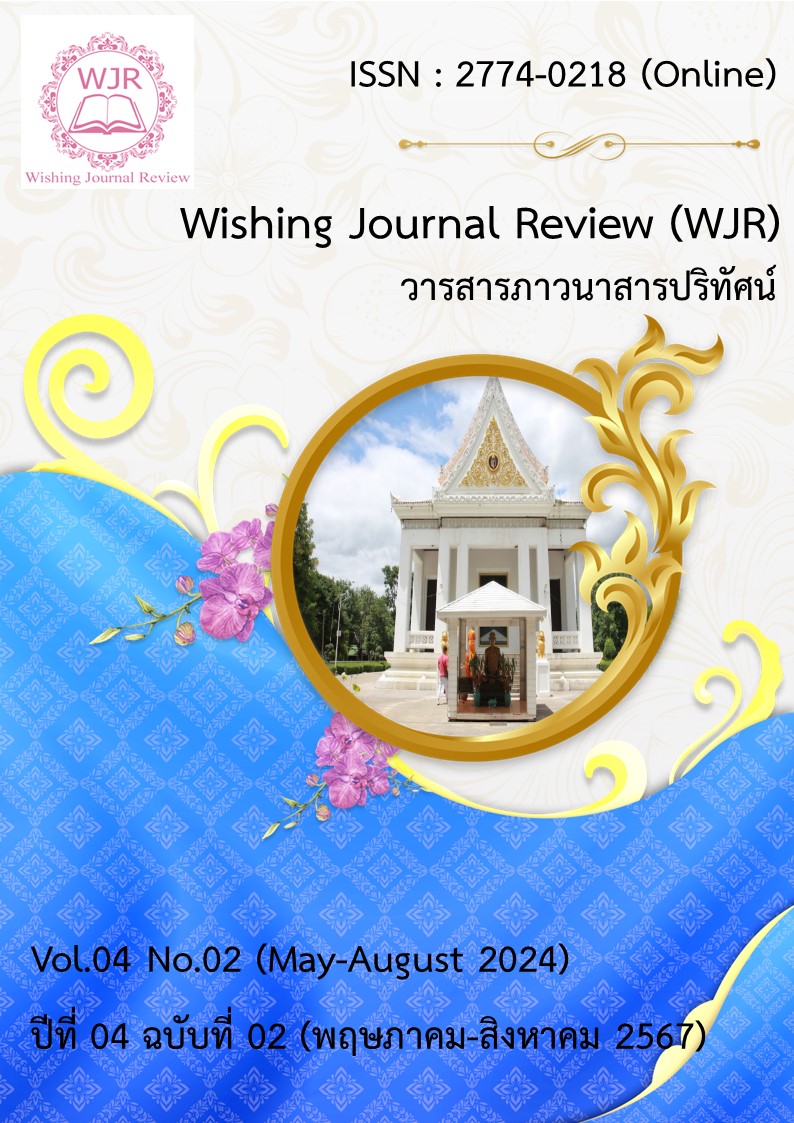Integration of the Tri-Sikha with Learning Theories and Management Principles
Keywords:
Integration, Tri-Sikha, Learning TheoriesAbstract
Abstract
Education is about shortening the correct distance, because if one does not study anything, life might just be wasted in endlessly solving problems. The purpose of education in Buddhism is not solely focused on theoretical study. This is because satisfaction with just the theoretical aspect without leading to practical application cannot achieve the maximum benefits intended. Although Buddhism promotes the initial study of theory, it does not commend individuals who are satisfied and stop at just the theoretical study. Therefore, an analogy is made to those who are interested in only theoretical study; they are like a blind person holding a torch but unable to see the light it emits. In other words, they cannot truly benefit from what they have learned or memorized, akin to the proverb from the Ananda Theri Gatha.
References
ทิศนา แขมมณี. (2559). ศาสตร์การสอน. พิมพ์ครั้งที่ 14. กรุงเทพฯ: สำนักพิมพ์แห่งจุฬาลงกรณ์มหาวิทยาลัย.
พรรณี ชูทัย เจนจิต. (2538). จิตวิทยาการเรียนการสอน. กรุงเทพฯ: ต้นอ้อ.
พระราชกิจจานุเบกษา. (เล่มที่ 116). (2542). พระราชบัญญัติการศึกษาแห่งชาติ พ.ศ. 2542. กรุงเทพฯ: สำนักงานคณะกรรมการกฤษฎีกา.
มหาจุฬาลงกรณราชวิทยาลัย. (2557). พระไตรปิฎกภาษาไทย ฉบับมหาจุฬาลงกรณราชวิทยาลัย. กรุงเทพฯ: โรงพิมพ์มหาจุฬาลงกรณราชวิทยาลัย.
สำนักงานคณะกรรมการการศึกษาแห่งชาติ. (2543). ปฏิรูปการเรียนรู้ผู้เรียนสำคัญที่สุด. กรุงเทพฯ: โรงพิมพ์การศาสนา.
สำนักมาตรฐานการศึกษาและการพัฒนาการเรียนรู้. (2550). การจัดการเรียนรู้แบบใช้ปัญหาเป็นฐาน. กรุงเทพฯ: ชุมนมสหกรณ์การเกษตรแห่งประเทศไทย จำกัด.
อินถา ศิริวรรณ, ดร. (2544). พื้นฐานการศึกษา. กรุงเทพฯ: สำนักพิมพ์สูตรไพศาล.
Downloads
Published
How to Cite
Issue
Section
License
Copyright (c) 2024 Wishing Journal Review

This work is licensed under a Creative Commons Attribution-NonCommercial-NoDerivatives 4.0 International License.



